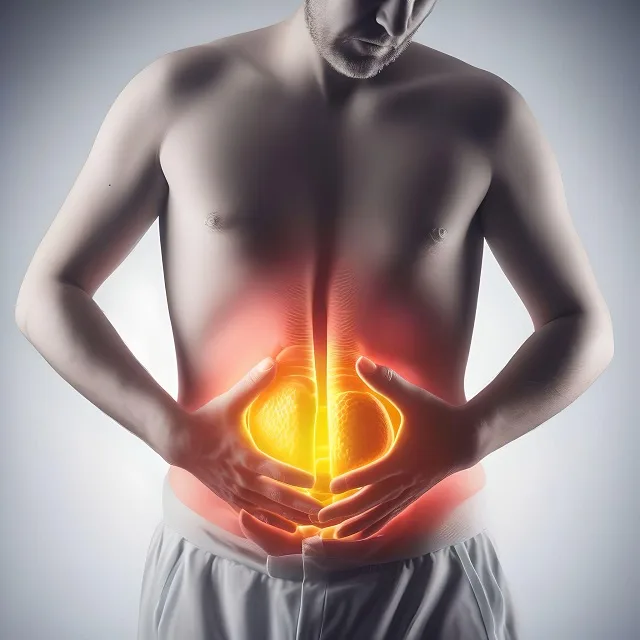Table of Contents
Keywords : Crohn’s Disease
Introduction:
Understanding Crohn’s Disease: Symptoms, Causes, and Treatment
Crohn’s Disease is a chronic inflammatory bowel disease (IBD) that affects millions of people worldwide. Characterized by inflammation of the digestive tract, it can lead to severe abdominal pain, diarrhea, fatigue, weight loss, and malnutrition. Despite its prevalence, Crohn’s Disease remains a complex and challenging condition to manage. In this article, we’ll delve into its symptoms, causes, diagnosis, and available treatment options.
Symptoms of Crohn’s Disease:
Crohn’s Disease can affect any part of the digestive tract, from the mouth to the anus, but most commonly impacts the small intestine and the beginning of the large intestine (colon). Symptoms vary from person to person and may fluctuate over time. Common symptoms include:
- Abdominal Pain: Persistent cramping or abdominal pain, often in the lower right area.
- Diarrhea: Frequent, watery stools, sometimes accompanied by blood.
- Weight Loss: Loss of appetite and malnutrition due to decreased nutrient absorption.
- Fatigue: Ongoing fatigue and weakness, possibly due to anemia or the body’s response to inflammation.
- Fever: Low-grade fever or elevated body temperature during flare-ups.
- Rectal Bleeding: Blood in stool or bleeding from the rectum.
- Perianal Disease: Inflammation or infection around the anus, leading to pain or drainage.
Causes of Crohn’s Disease:
The exact cause of Crohn’s Disease remains unknown, but it’s believed to result from a combination of genetic, environmental, and immune system factors. Potential causes and risk factors include:
- Genetics: Family history plays a significant role, with individuals having a close relative with Crohn’s Disease being at higher risk.
- Immune System Dysfunction: The immune system may mistakenly attack harmless bacteria in the digestive tract, leading to inflammation.
- Environmental Factors: Smoking, diet high in processed foods, and certain medications may increase the risk of developing Crohn’s Disease.
- Previous Infections: Some research suggests that past bacterial or viral infections may trigger an abnormal immune response, leading to Crohn’s Disease in susceptible individuals.
Diagnosis:
Diagnosing Crohn’s Disease typically involves a combination of medical history review, physical examination, imaging tests, and laboratory tests. These may include:
- Blood Tests: To check for signs of inflammation, anemia, or nutrient deficiencies.
- Stool Sample Analysis: To rule out infections and check for blood in the stool.
- Colonoscopy or Endoscopy: These procedures allow direct visualization of the digestive tract to identify inflammation, ulcers, or other abnormalities.
- Imaging Tests: Such as MRI, CT scan, or X-ray, to assess the extent of inflammation and complications.
Treatment Options:
While there’s no cure for Crohn’s Disease, treatment aims to control inflammation, alleviate symptoms, and maintain remission. Treatment options include:
- Medications: Anti-inflammatory drugs, immunosuppressants, antibiotics, and biologics can help reduce inflammation and manage symptoms.
- Nutritional Therapy: Some individuals may benefit from dietary changes or nutritional supplements to manage symptoms and maintain proper nutrition.
- Lifestyle Changes: Quitting smoking, reducing stress, staying hydrated, and adopting a low-residue diet may help alleviate symptoms and reduce flare-ups.
- Surgery: In severe cases or when complications arise, surgery may be necessary to remove damaged portions of the digestive tract or repair fistulas, abscesses, or strictures.
In Conclusion:
Crohn’s Disease is a chronic condition that requires ongoing management and support. With the right treatment plan, many individuals with Crohn’s Disease can achieve remission and lead fulfilling lives. However, the disease can be unpredictable, with periods of remission alternating with flare-ups. Regular monitoring by healthcare professionals is essential to adjust treatment as needed and minimize complications. Additionally, support from healthcare providers, support groups, and loved ones can play a crucial role in managing the physical and emotional challenges associated with Crohn’s Disease.
checkout : https://usameanwhile.com
you may also wants to read : usameantime.com/health/stiff-person-syndrome
